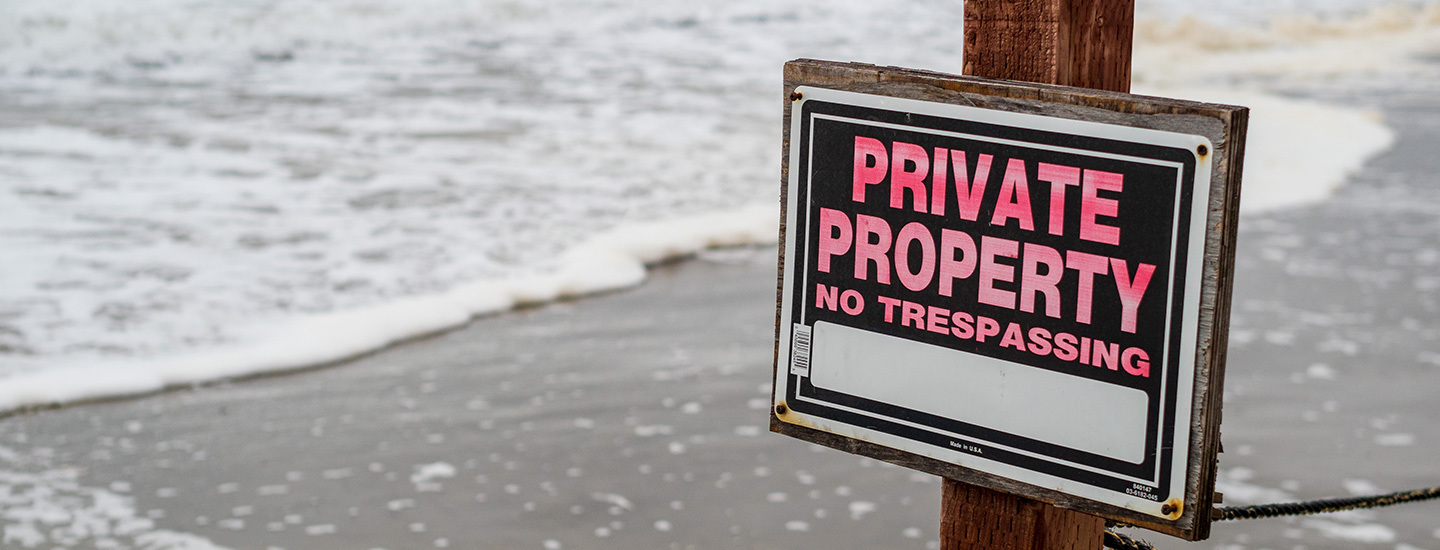
A California Appellate Court handed down a strong ruling in favor of beach access last week, defending the California Coastal Commission's (“CCC”) actions to stop egregious attempts to block public beach access by a private homeowner in Malibu, California. The three judge panel of the California Court of Appeal, Second Appellate District, agreed that the Commission was justified in handing down a $4,185,000 fine for the blatant violations of Coastal Act law for several years. Although this was a hefty fine, it was only half of what California law allows for the potential penalty that could be imposed for this type of violation. The court found that the CCC acted in a reasonble manner and was within their legal authority to impose such fines.
The propertyowners have an easement requirement for a 5-foot wide public accessway to the beach on one side of the property. However, instead of a public accessway, there is a gate, private stairway and a deck blocking public access to the easement area, all of which are unpermitted by the CCC. The propertyowners even rented out the house as a vacation rental and advertised it as a “private beach” for over $1,000 per night. Meanwhile there is no public access to the beach near the Lents’ property, which is part of a three-mile stretch of the coast with no nearby public access. While the facts demonstrate how the plaintiffs flouted access requirements, there is also no question that state law places significant value on the public's right to access the California coast.
Surfrider Foundation entered this case alongside environmental justice group Azul as an amicus (“friend of the court”) party, represented by Stanford Environmental Law Clinic, to argue in support of the Coastal Commission's actions to impose a fine under Coastal Act section 30821. Section 30821 is designed to deter future public access violations, speeds up the resolution of access issues and allows the Coastal Commission to more effectively manage an increasing number of public access cases. This 2014 beach access law was spearheaded by then-Assembly Speaker Toni Atkins to stregthen the CCC's authority to protect coastal access. These measures to ensure beach access are especially important in places along the California coast, such as Malibu, that have notoriously tried to close their public beaches to outsiders, including low-income, inland and/or minoriity populations.
The court held “We conclude substantial evidence supported the Commission’s decision to issue the cease and desist order. We also conclude the Commission did not violate the Lents’ due process rights by imposing a $4,185,000 penalty” for violations since November 2014. The appellate court also found that the penalty amount did not violate the federal or state protections against excessive fines, pointing out that “[t]he trial court found the Lents had a high degree of culpability because they willfully retained unpermitted structures and deliberately refused to remove those structures for over nine years after the Commission notified them the structures violated the Coastal Act.”
Commissioners utilized the civil penalty authority udner section 30821 in the exact manner that it was intended – as a deterrent and to resolve access violations in a more timely and meaningful manner. With this decision, the Appellate Court has supported the CCC's actions to thwart those who attempt to make our public beaches a private playground. It will send a message to other Malibu beachfront homeowners that the important state beach access laws cannot be disregarded.
The case may be ongoing, however, since the propertyowner plaintiffs Lents have already requested a rehearing. They also have the right to appeal the case up to the California Supreme Court. With amicus briefs filed in support of the plaintiffs by Malibu Association of Realtors, New Civil Liberties Alliance, Center for Balanced Land Use and the Farm Bureau Federation and their main legal counsel at Pacific Legal Foundation, the case is taking the shape of strong private property rights interests pitted against Surfider Foundation and our allies in defending beach access. Surfrider will post any updates on this case as soon as they are available.
